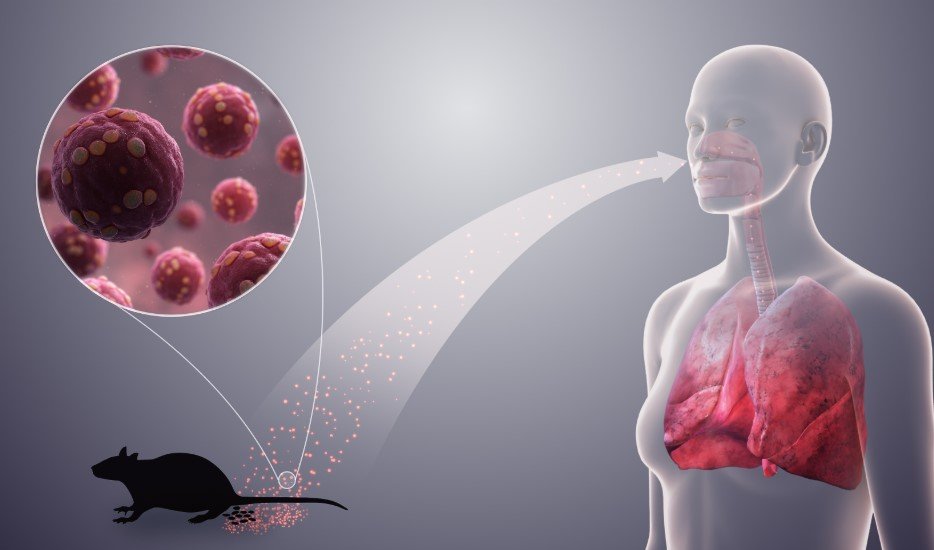Rodent-borne disease claims three lives in 2025, including a Hollywood figure, prompting new health alerts
A silent and deadly virus has crept back into headlines in California. Three confirmed deaths—each sudden and severe—have now been linked to Hantavirus Pulmonary Syndrome, including the passing of actor Gene Hackman’s wife, Betsy Arakawa.
The deaths, spread across different locations and with limited clues, have reignited concern over a virus many thought was a rare fluke. But now, it’s claiming lives with no clear pattern and no advance warning.
A Rare Killer Strikes Again
Hantavirus isn’t new, but it doesn’t behave like something from modern times.
In the U.S., it first got real attention in 1993 after a deadly outbreak in the Four Corners region. Back then, it stunned even seasoned epidemiologists. Fast forward to 2025, and it’s back, uninvited and lethal.
The latest case in Mono County stunned public health officials. A young adult died with no visible sign of rodent activity in their home. Yet, a few mice were discovered at their workplace. That tiny detail might’ve been the only clue to a fatal exposure.

“Each of these three deaths has been tragic and alarming,” said Dr. Tom Boo, Mono County Public Health Officer. “We don’t yet fully understand how this virus found its way to the victims.”
Gene Hackman’s Tragic Loss and Confusion Over Cause
In late February, news broke that Betsy Arakawa, wife of Academy Award-winning actor Gene Hackman, had died suddenly. The cause: Hantavirus pulmonary syndrome.
Gene Hackman himself passed away just days later at their home in Santa Fe, New Mexico. Initially, many feared the worst—that the virus had claimed both. But his autopsy confirmed an entirely different cause: hypertensive and atherosclerotic cardiovascular disease, with Alzheimer’s as a contributing factor.
So yes, it was just a tragic coincidence. But that didn’t stop the public from panicking.
What Even Is Hantavirus?
This isn’t your seasonal flu or your average cold. Hantavirus is a nasty customer.
It spreads mostly through direct contact with rodent waste—urine, saliva, or feces. And it’s sneaky. You don’t need to touch a rat or even see one. Just breathing in dust that’s been contaminated is enough to infect you.
Here’s the scary part:
-
Symptoms often look like the flu at first—fever, muscle aches, fatigue.
-
But within days, it can escalate to severe respiratory distress.
-
Most diagnosed cases require ICU care.
-
And the fatality rate? Around 38% in the U.S., according to the CDC.
Where It’s Coming From and Why Now
This is where things get murky.
Public health experts have always warned that rural or semi-rural areas are most at risk. Old barns, woodpiles, and cabins can be hotspots. But these new cases? They weren’t in isolated cabins in the woods.
Take Mammoth Lakes, where the third fatal case occurred—it’s a town, not a remote wilderness.
Experts say several factors could be increasing risk:
-
Mild winters mean more rodent survival.
-
Droughts drive mice into human areas looking for food and shelter.
-
Increased construction or cleanup work can stir up contaminated dust.
Still, that doesn’t explain why it’s happening now with such deadly timing.
A Look at California’s Hantavirus Cases
To understand how serious this is, here’s a quick snapshot of California’s HPS cases in recent years:
| Year | Confirmed HPS Cases | Fatalities |
|---|---|---|
| 2020 | 2 | 0 |
| 2021 | 1 | 1 |
| 2022 | 0 | 0 |
| 2023 | 1 | 0 |
| 2024 | 1 | 1 |
| 2025 (so far) | 3 | 3 |
Yes, the numbers are small. But the death rate? It’s chilling.
What You Can Do to Stay Safe
Look, nobody’s saying you should panic every time you see a mouse. But health officials are clear—take this virus seriously. Especially in areas where rodent activity is common.
One sentence.
Another short one.
If you live in or travel through areas known for rodent activity, follow these tips:
-
Avoid sweeping or vacuuming mouse droppings, which can stir up dangerous particles.
-
Instead, wear gloves and use disinfectant-soaked paper towels to clean up messes.
-
Seal food in rodent-proof containers and close entry holes in homes or sheds.
-
If you see signs of infestation, act fast—don’t wait until it’s “bad enough.”
A Public Health Warning with a Celebrity Face
Let’s be honest, it took a high-profile death to get people talking about Hantavirus again. And that’s sad.
Gene Hackman and Betsy Arakawa lived quiet, private lives. But in death, their story may save others—by drawing attention to a virus that rarely gets headlines.
This isn’t a call to panic. It’s a reminder that nature is unpredictable—and sometimes, it gets way too close for comfort.
